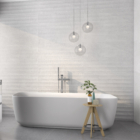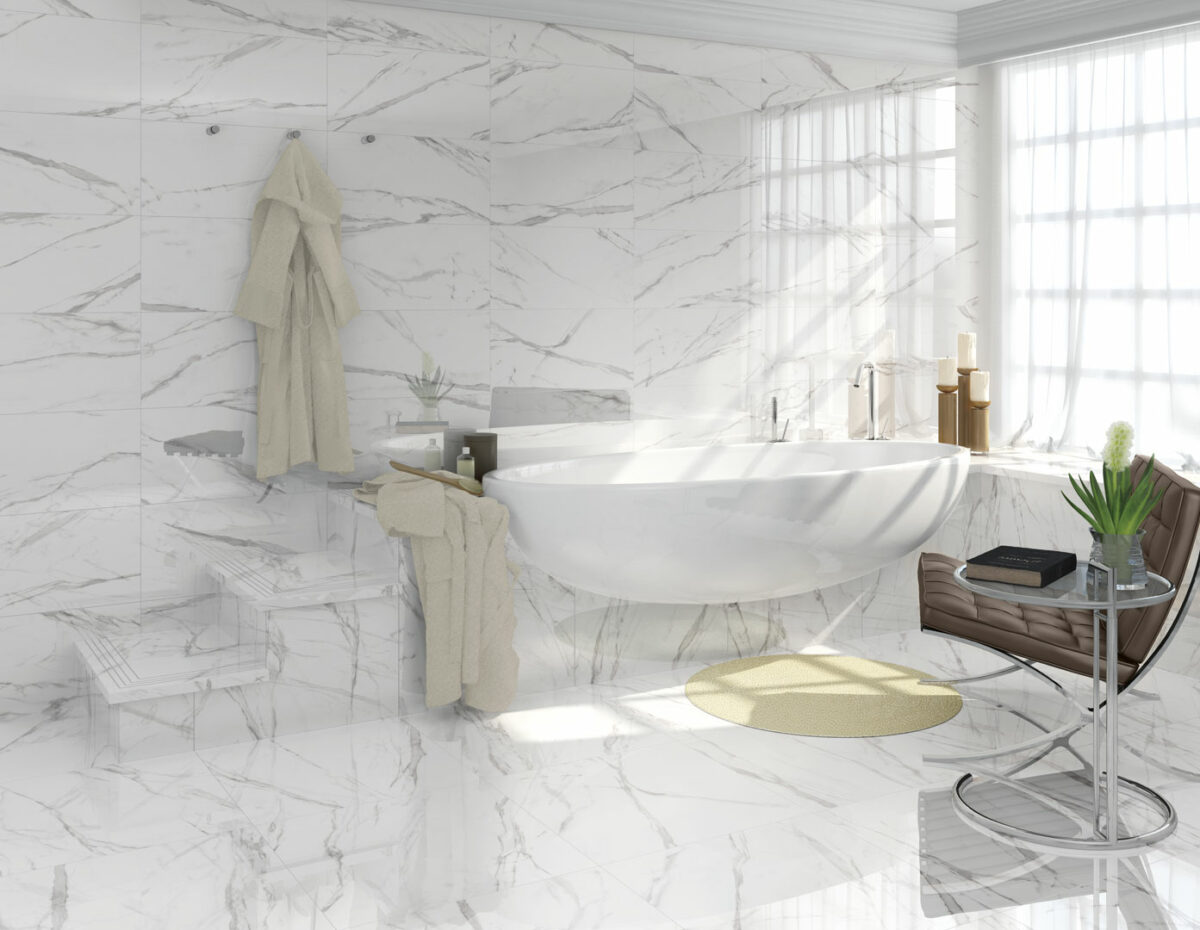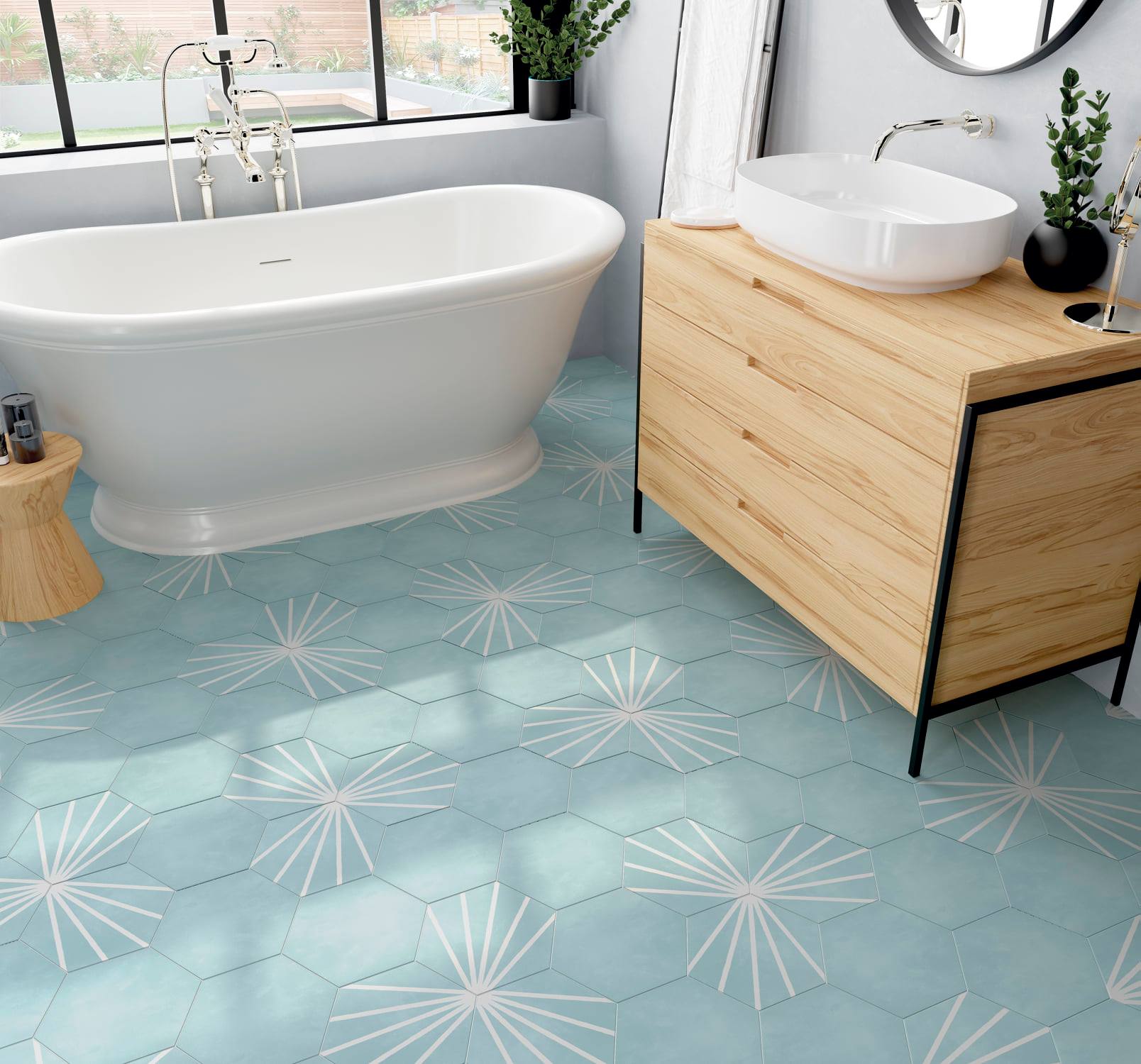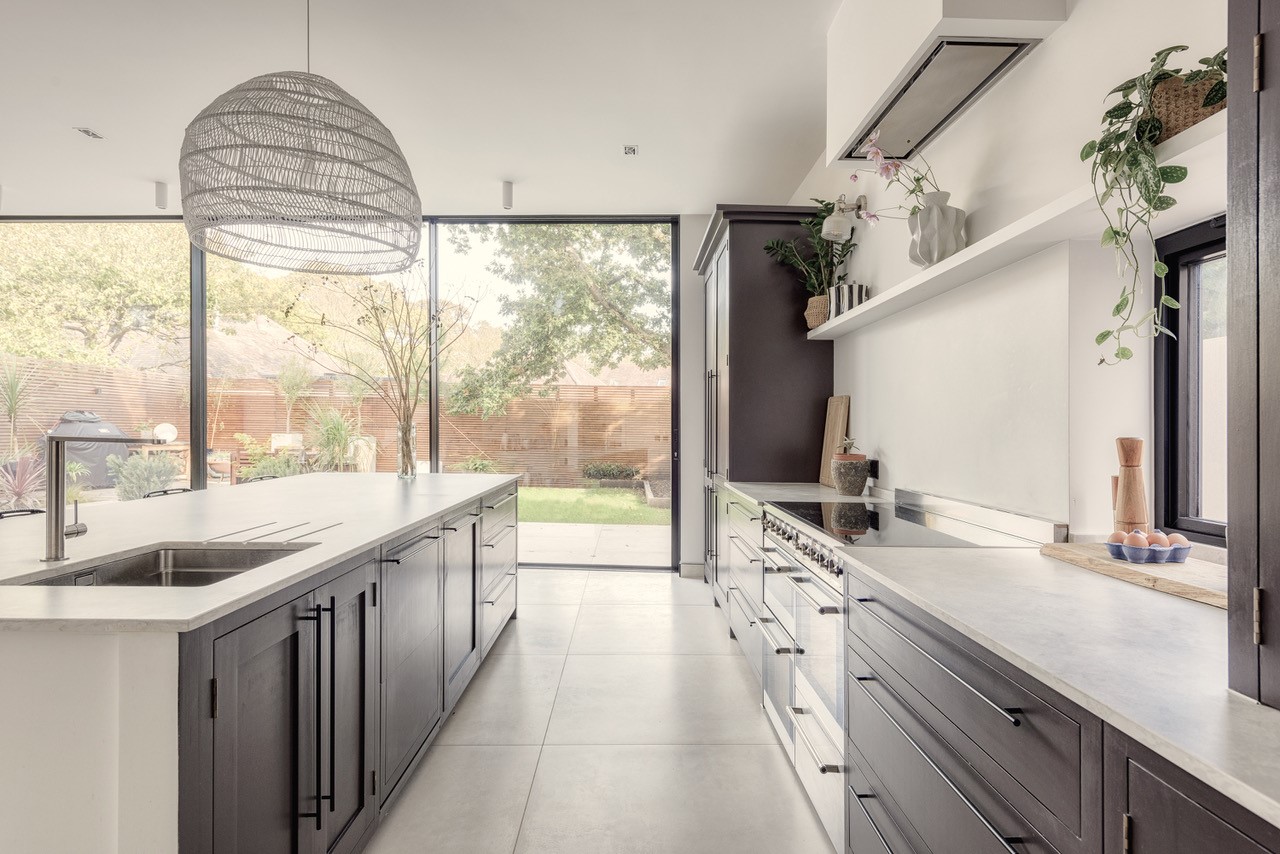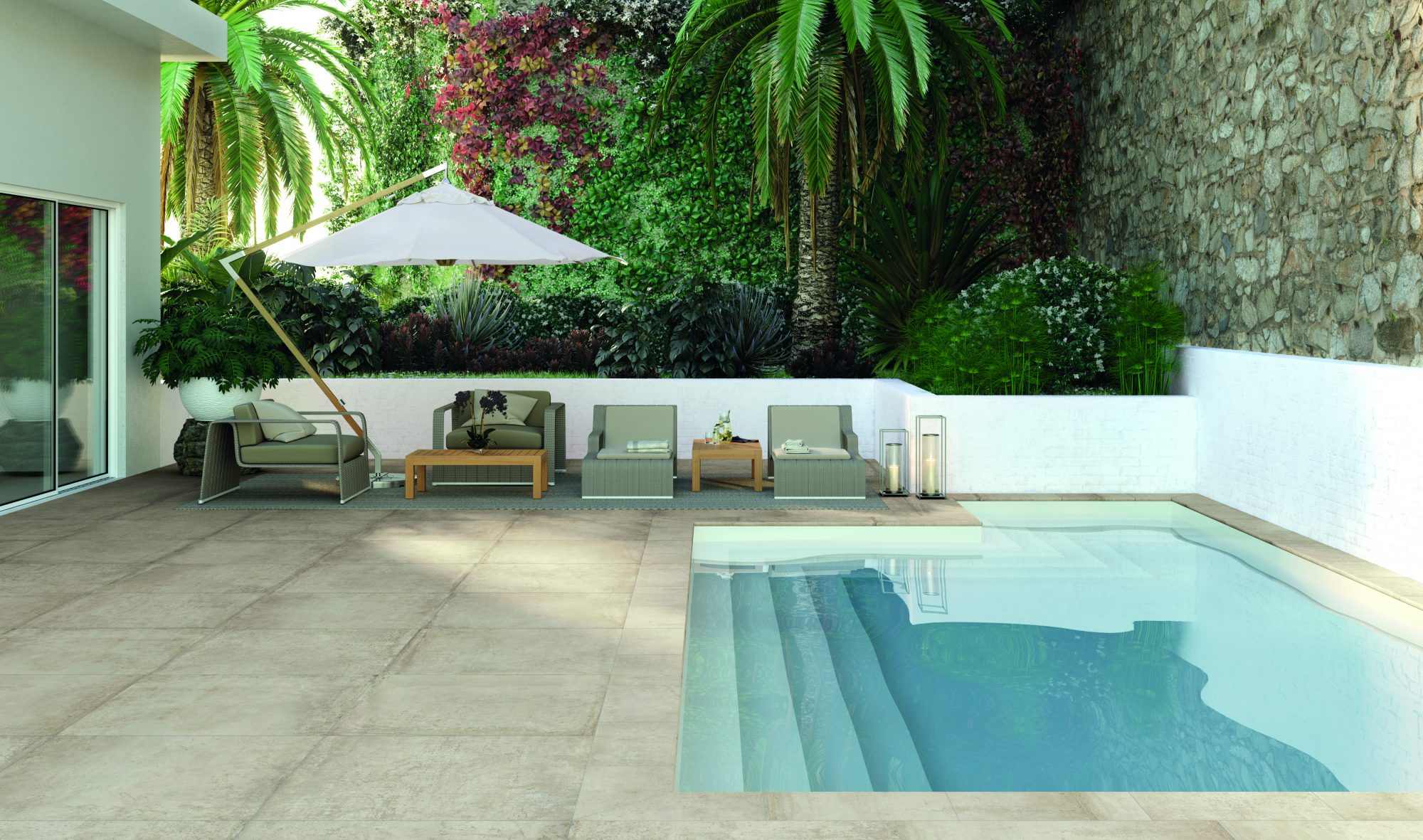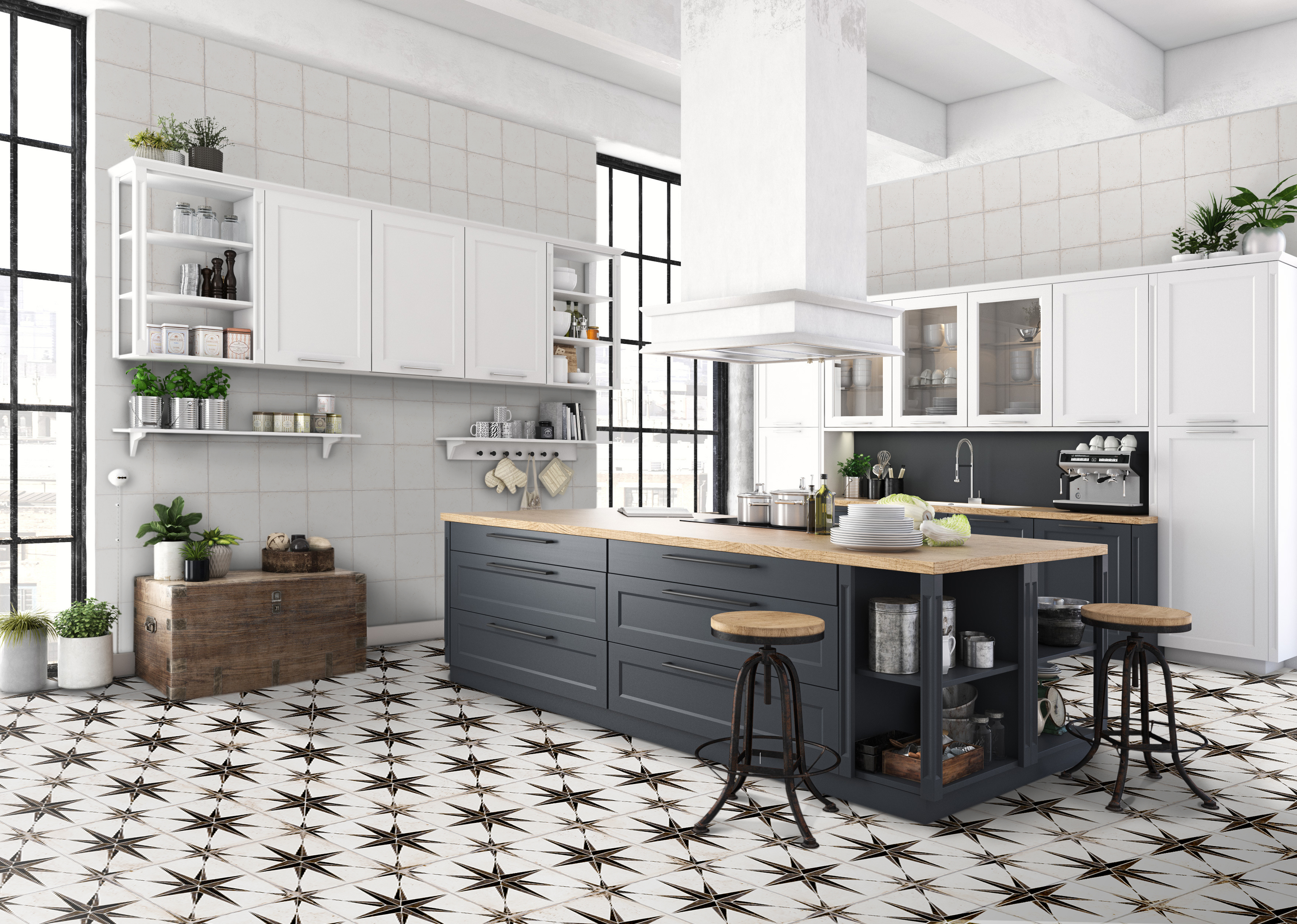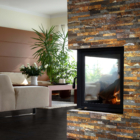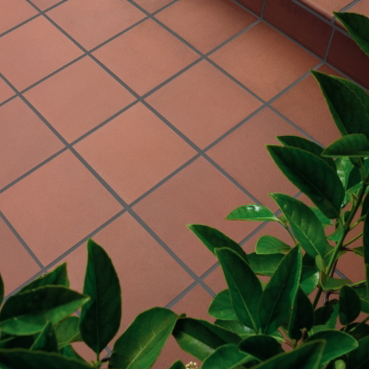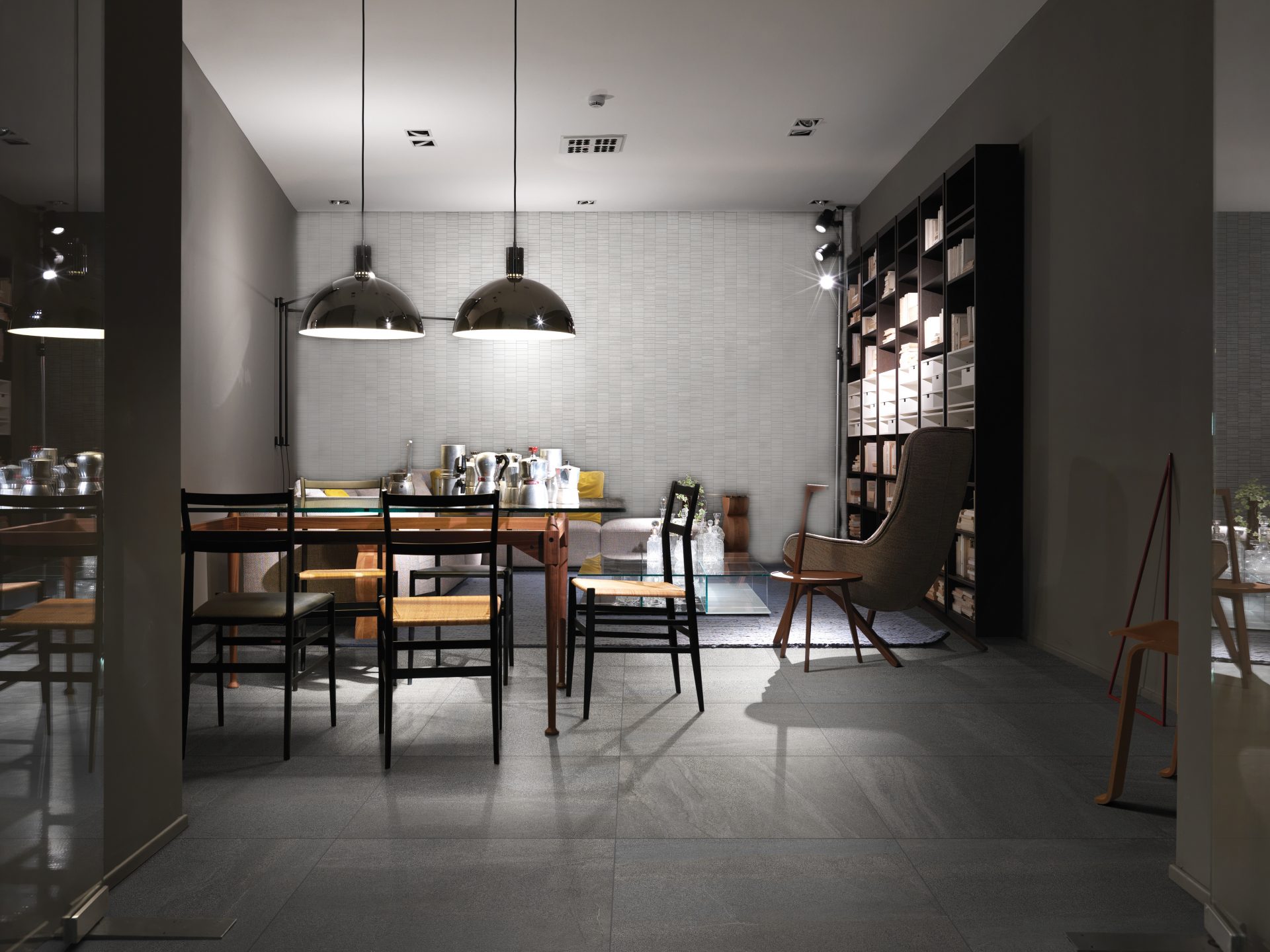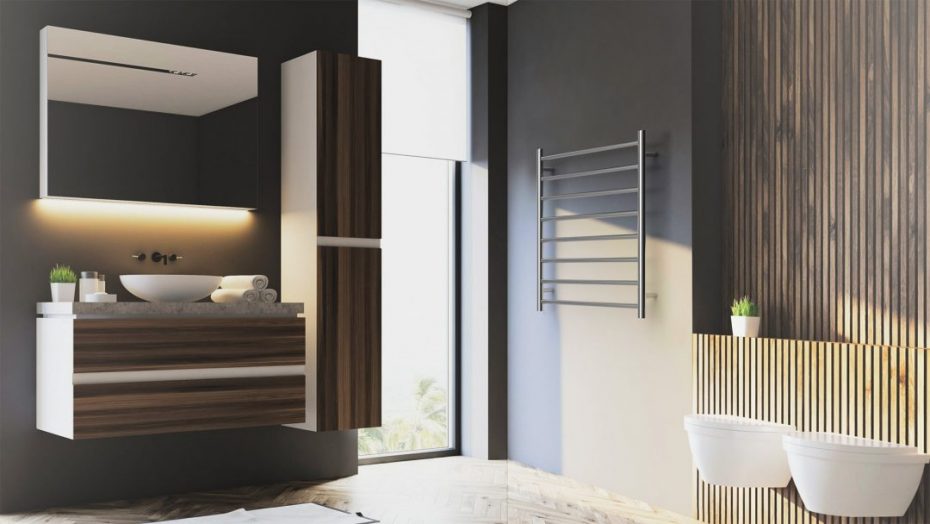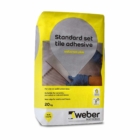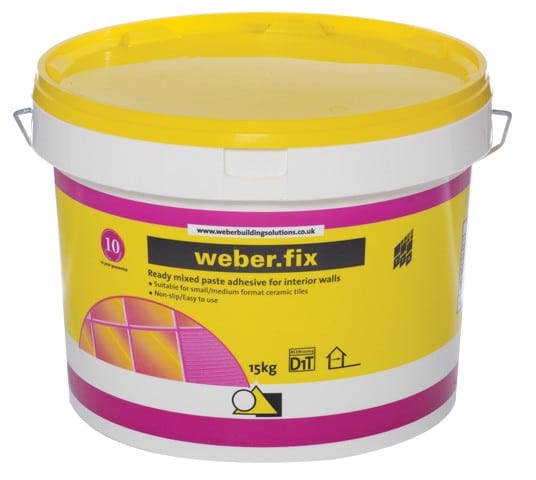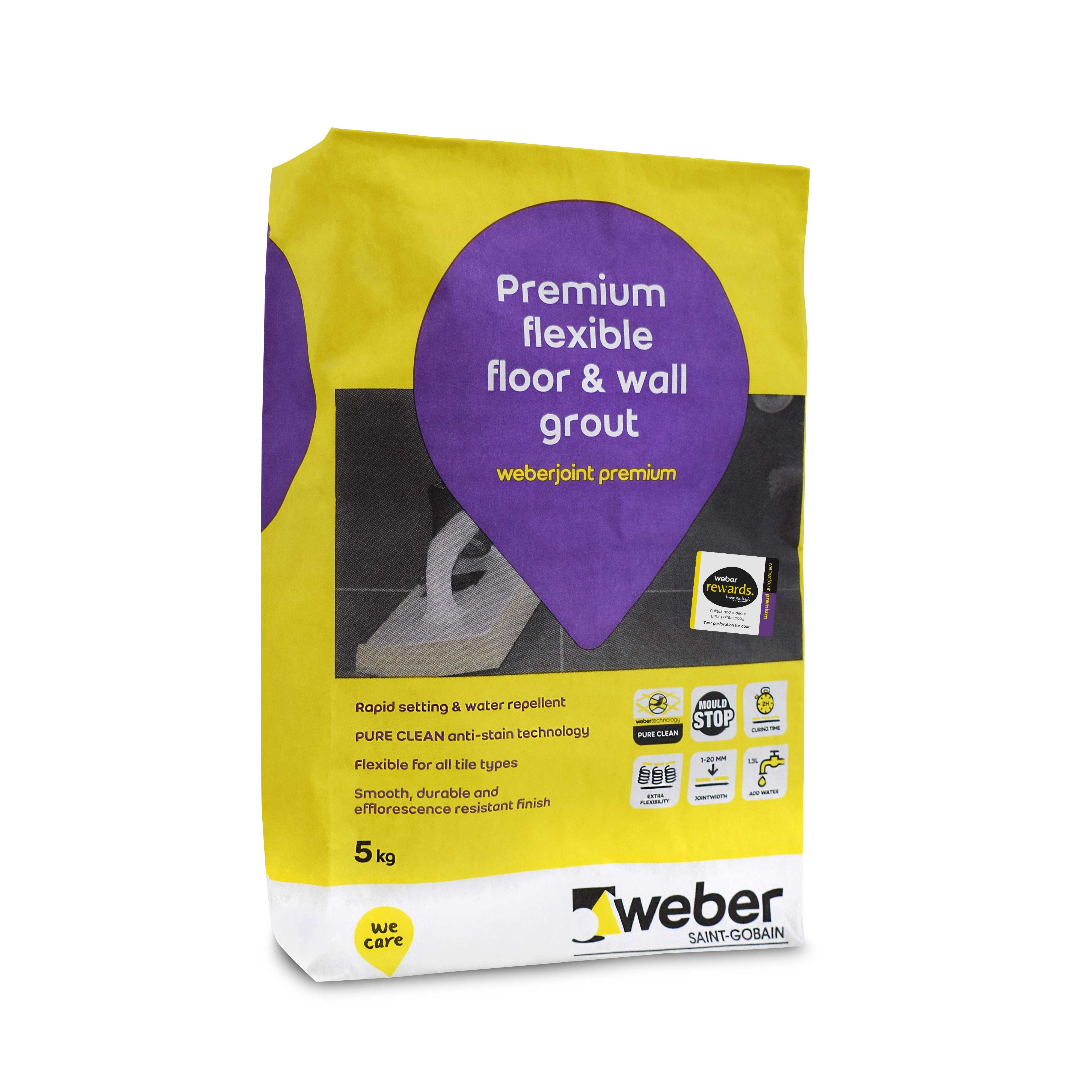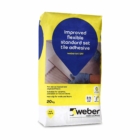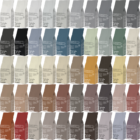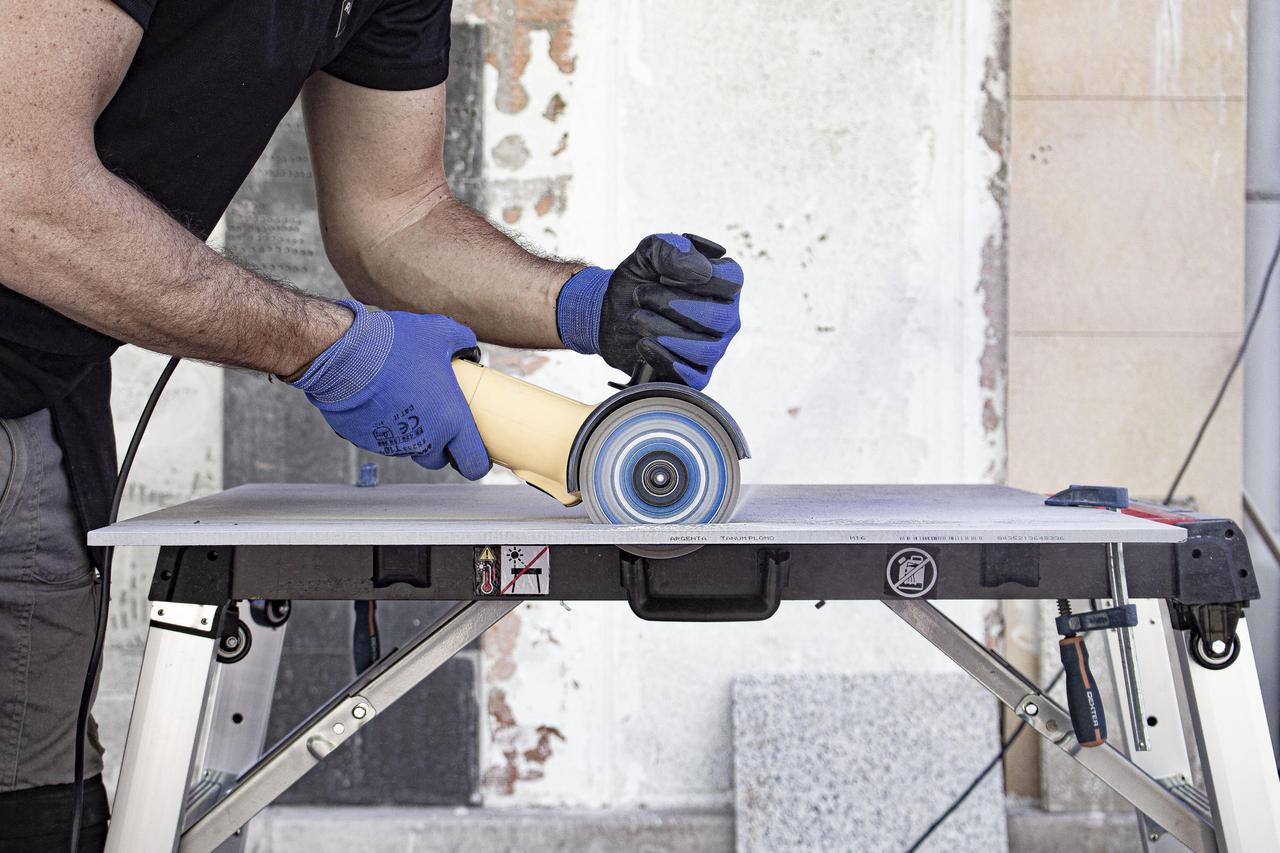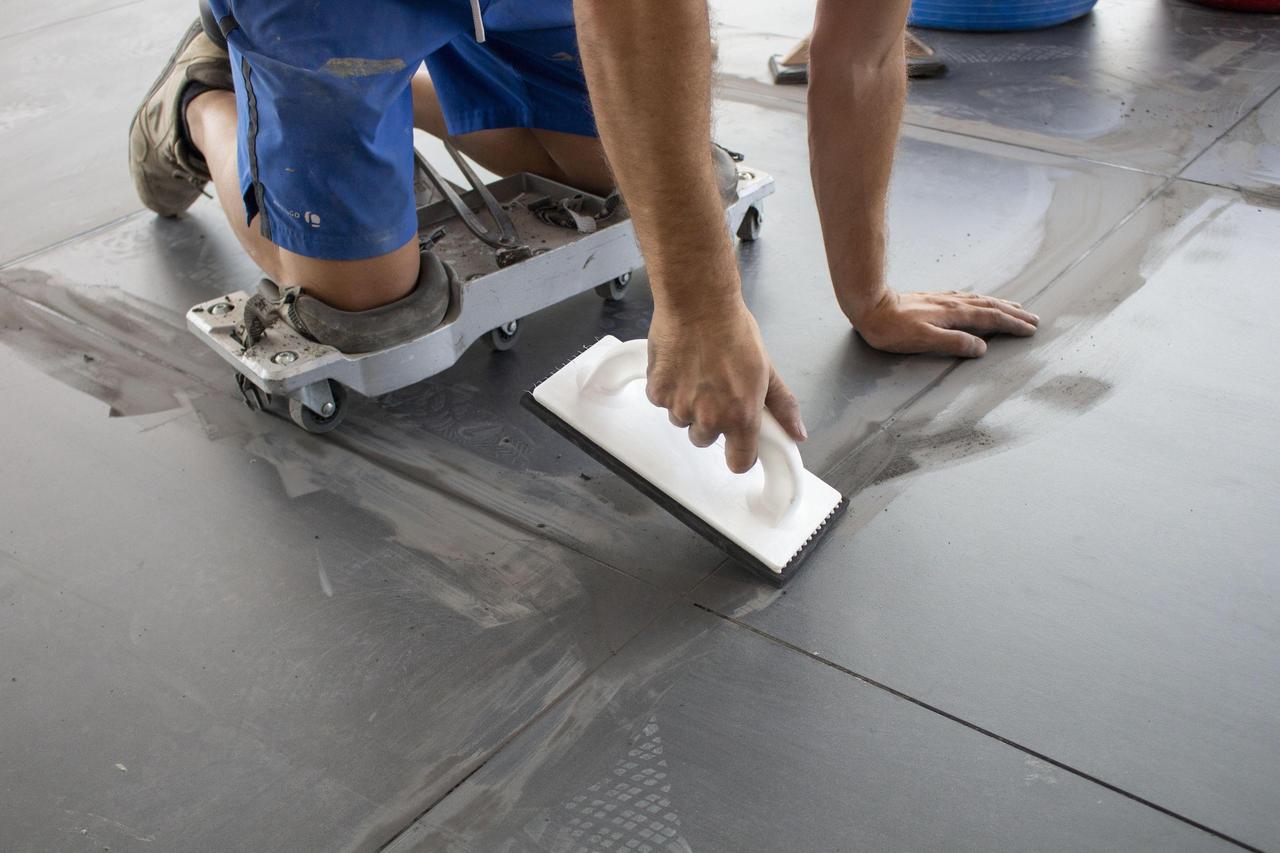What Tools And Materials Are Needed For Tiling?
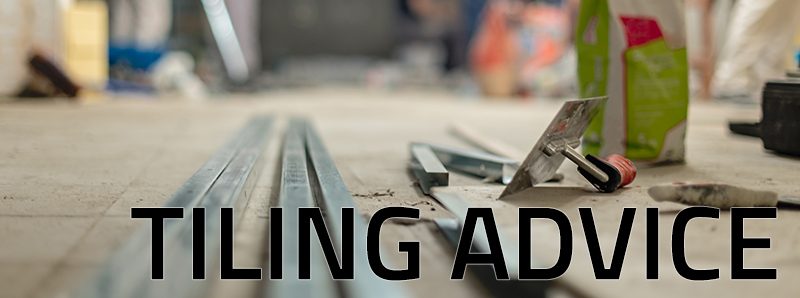
In a flurry of cutting, proofing and layering, you can tile a floor or wall space in little more than a day when you have the right tools to hand. Or, instead, you can slave at the job with inferior tiling kit, submitting to a lack of knowledge about what’s going to make the whole experience cleaner, easier and more manageable.
We want to share our best equipment for speeding along a tiling project, so you aren’t bogged down in the task at hand. With these tools, it’s possible to save time and get the results you desire. One shouldn’t be sacrificed for the other.
Keep reading for our seven favourite products that will fast-track your route to the perfect finish.
The Square Notch Trowel
Why do trowels made for tiling have square or curved notches? Because this physical feature distributes the exact right amount of sealant on the surface you’re dealing with. There’s less chance of any excess, too-thick mortar for floors, bathrooms and kitchens, or any other structural environment.
You can get a more even spread of whatever’s gluing the tile in place. As such, the layering is identical, and air can escape when the tile is set. That means you can quickly paste over several square feet at a time whilst knowing the conditions are perfect for application. In terms of tools to help you tile quicker, a good trowel can’t be undervalued.
Tile Backer Boards
There’s no point tiling on an ill-suited base. Moisture, adhesive elements and underfloor heating can ruin the wrong materials. Just think – you might spend hours fixing the tiles in place only to have their stability threatened in a day or two, requiring you start from scratch.
That’s why we recommend NoMorePly boards for reliable backing. They are tough, fire-resistant, and have a ‘tongue & groove’ system that locks tiles in securely. Watch this YouTube channel for tips on fast NoMorePly board installation, as well as how to prepare them for a tiling task.
A Multi Drill Bit Guide
Stability is also key for drilling functions i.e. the provisions needed for all sorts of floor and wall attachments. We’re talking about screwing toilets, toothbrush holders, lights, shower cubicles and cabinets where they belong. Failing to drill accurate, well-spaced holes from the get-go will result in a lot of remedial work later.
Hence, a drill bit guide is essential for the tiler’s toolkit. It keeps the drill steady whilst you’re focusing on where to lay the point, stopping it from slipping and juddering too much. Our Rubi guide mechanisms are compatible with diamond drill tips for the sharpest cut possible.
Gel-Based Knee Pads
Sticking with the Rubi brand for now, it’s worth considering how your physical limits can be reached in a very short span of time. Our knees and tendons are prone to buckling when we’re tiling for extended periods. Even if the first flush of work goes smoothly, you’ll start to feel the strain after a couple of hours. That’s why special knee pads are useful for alleviating the pressure.
Once set up, they ensure you have a soft, impact-averse solution for remaining strong and fast-acting during the tiling project. Thanks to the pliability of the gel, they bend on uneven flooring too, so you stay protected. It’s a simple way to help your productivity go up. Tools to help you tile quicker rarely get more affordable.
Tile Spacer
Again, there’s no sense risking a slapdash technique if you’ll have to redo it later. Spacers are useful for mapping out where the tiles will go, side-by-side, on the floor or wall arrangement. Nudging one square with your foot – or slipping it forwards/backwards with your knee – will throw the uniformity off altogether. Eventually, all those minutes spent getting everything back in order will add up…
Spacers can keep the tiles apart from one another, all the way up until you set them on the adhesive. Don’t worry – the clippers are plastic, and won’t stick to the mortar solution. Only take them off when you apply grout (the in-between solidifier) over the tile area, to finalise it.
Ready-Mixed Adhesives
Tiling mortar is similar to concrete: a blend of ingredients that make for a viscous, fast-acting adhesive. Trying to combine these elements yourself is time-consuming – the amateur tiler wants a pre-made batch they can merely add water to, in a vessel they can carry to and fro.
Luckily we have Weber fix, ready-made adhesive items that come in a special bucket. Numerous categories are available, depending on the materials you’re using. In this sense, you can get an adhesive that’s primed for wet rooms, underfloor heating, kitchen interiors and whatever else you may be tiling. The bucket will hold the main mix whilst you top it up with packs of adhesive powder.
Self-Levelling Solutions
What to do when a floor is askew? There are a handful of tricks to choose from, including ‘packing out’ (making the adhesive bed thicker where necessary) and opting for a mesh-backed mosaic finish. Yet we’re fans of the self-levelling approach, by which a solution is poured along the floor space until it settles into the troughs, making the entire area level.
It doesn’t require much effort on your part, aside from stirring the compound and marking where the uneven points are. It’ll take up to a full day to dry, but that’s worth it for the prospect of doing a quick, well-prepped tiling job the next morning.
Piece by piece, these tools will shave your tiling timeframes down to size. They don’t limit any creative application, and can be deployed for certain tasks more than others… Yet we hope you’ve gained a fair bit of confidence in tools that help you tile quicker, without cracking into chaos.
Atlas Ceramics are here for your tiling and underfloor heating toolkit. Check out our full catalogue of materials, mixes and accessories, or speak to a member of our team for a friendly chat about what you’re hoping to do.
Article by Mike Lovatt
Here at Atlas Ceramics we import and distribute high quality products to support the tiling industry. These products include Polished tiles, Matt tiles or Satin tiles for the wall and floor, ceramic and porcelain tiles, natural stone and mosaics, from Italy, Portugal, and Spain.


